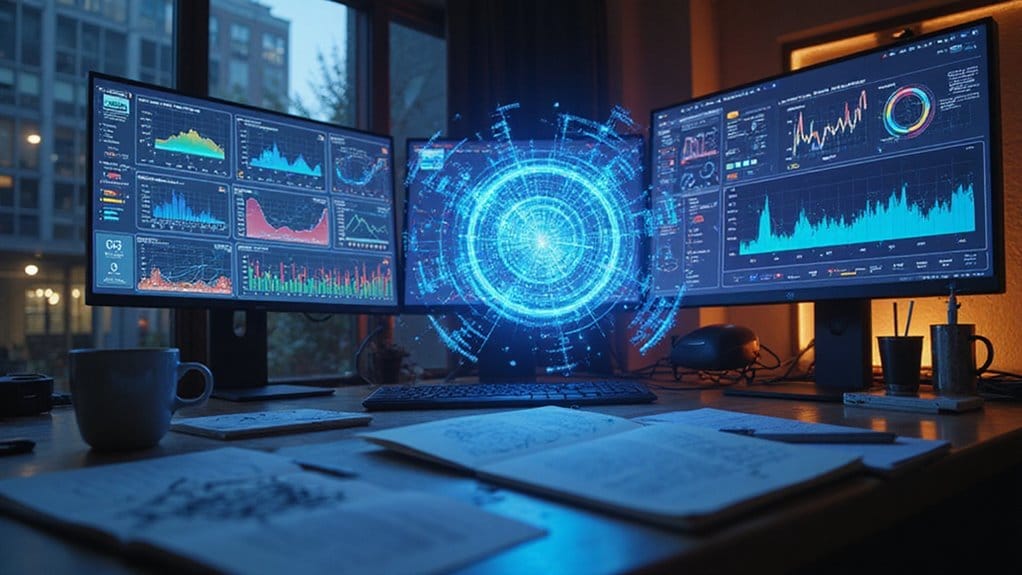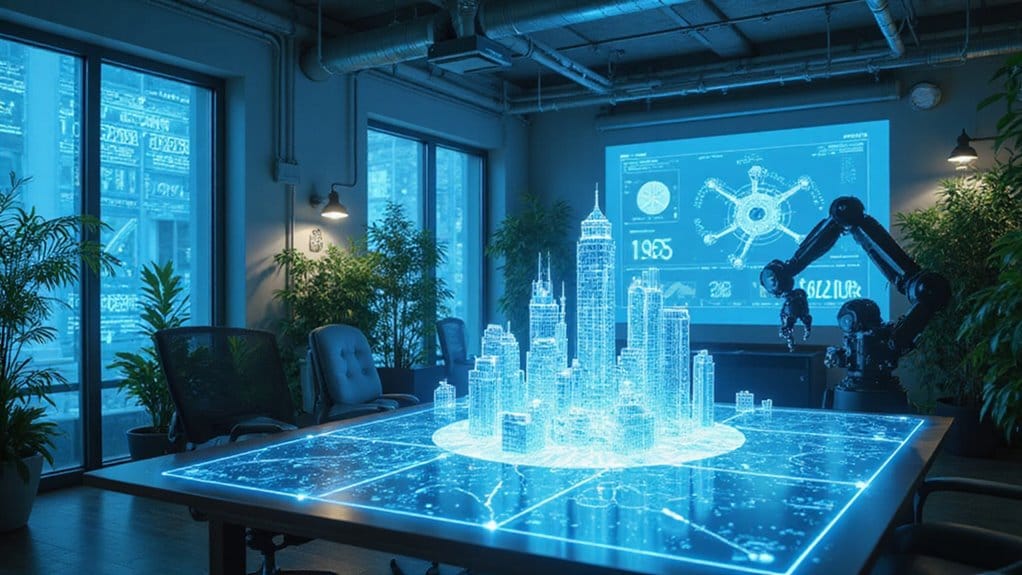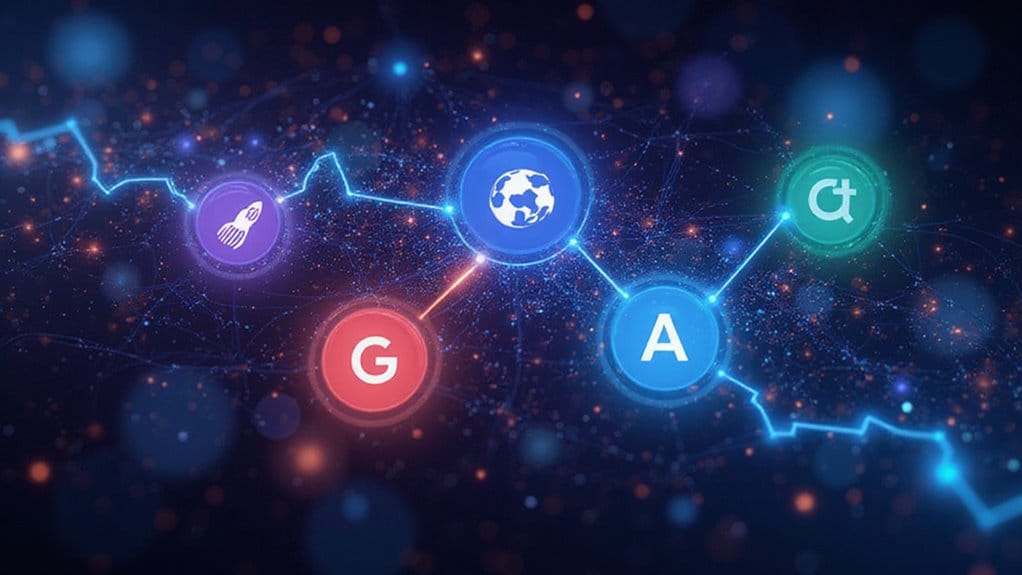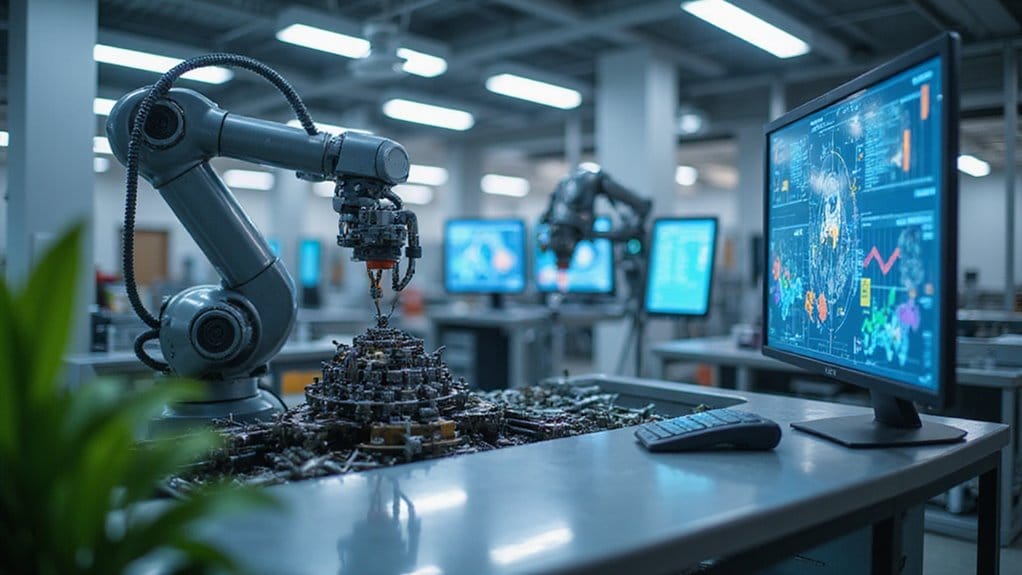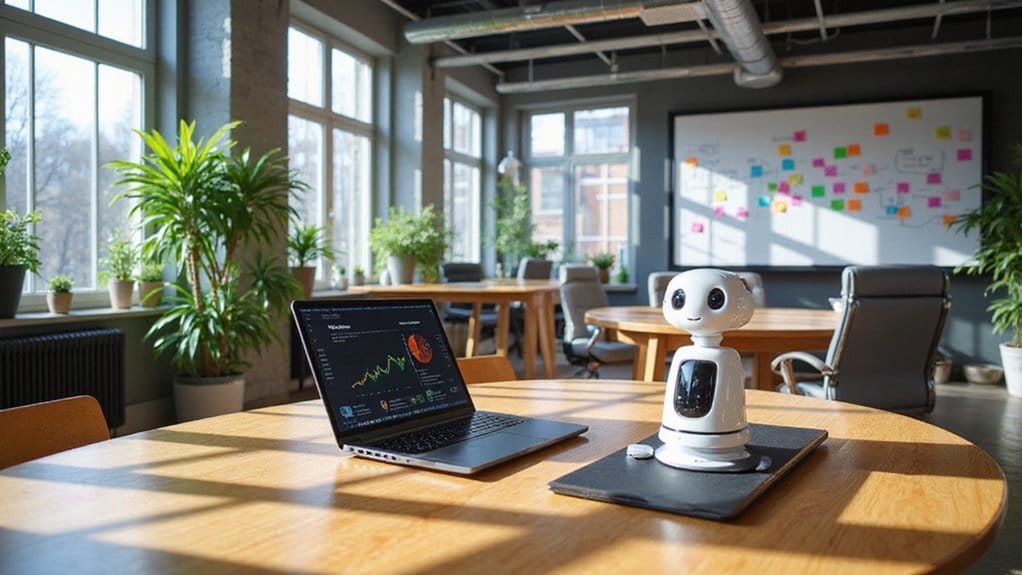AI ethics is a tightrope walk between innovation and human rights. Developers must prioritize fairness, transparency, and privacy; ignoring these can lead to biased, harmful systems. It’s not just a nice-to-have, folks—it’s a must! Who wants to live in a world where AI makes unfair decisions based on flawed data? Keep an eye on environmental impacts too. Stay tuned for more insights on making AI work for everyone, rather than against them.

In the ever-evolving landscape of technology, AI ethics stands as an essential beacon guiding the development and deployment of artificial intelligence. Imagine a world where algorithms make decisions about your life, but wait—who programmed those algorithms? This is where ethical implications come into play. Without a keen focus on algorithmic fairness, biases can creep in, making AI systems unfair and harmful.
AI ethics is crucial in ensuring fairness and accountability in algorithms that shape our lives. Who’s behind the code matters.
Picture this: an AI decides who gets a loan based on flawed data. If that data is biased, guess what? It amplifies the issues instead of solving them. This is why developers must prioritize bias mitigation in their designs. They need to guarantee that AI systems are not just efficient but also equitable.
Transparency and accountability are key. When AI systems operate like black boxes, trust evaporates. Users deserve to know how decisions are made. If an AI denies a job application, it should be able to explain why, not just hide behind vague algorithms. So, if you’re developing AI, remember—explainability isn’t just a nice-to-have; it’s a must-have. Additionally, the core principles of ethical AI emphasize the importance of interpretability in ensuring that AI decision-making processes are understood by users. Continuous detection of data and algorithm drift is essential to maintain trust and effectiveness in AI systems.
Now, let’s talk privacy. With the rise of AI, personal data is often at risk. Always respect privacy rights. If AI systems handle data carelessly, they can easily invade personal lives. This isn’t just a technical hiccup; it’s a breach of trust.
Finally, let’s not forget the environment. Yes, even your shiny new AI can have a carbon footprint. Developers should consider sustainability in their designs. It’s not enough to create cool tech; it should also contribute positively to human society and our planet.
Frequently Asked Questions
How Does AI Impact Job Security for Human Workers?
AI is shaking up job security like a snow globe! Job automation is leading to workforce displacement, leaving many workers anxious.
Think about it: 800 million jobs could vanish by 2030!
So, how can you adapt? Embrace skill adaptation! Learn new tech and pivot towards emerging fields.
Employment transformation is here—don’t get left behind. Stay proactive, seek retraining opportunities, and remember: the future’s bright for those who are ready to evolve!
What Role Do Governments Play in AI Regulation?
Governments play an essential role in AI regulation, and let’s face it, they really need to step up.
With tangled regulatory frameworks and a lack of transparency, oversight can feel like a game of hide-and-seek. They issue executive orders, create agencies, and draft legislation to keep the tech in check—sort of like herding cats.
Citizens must demand clarity and accountability. Remember, a well-regulated AI is a safer AI, so hold your leaders responsible!
Can AI Systems Exhibit Bias, and How Is It Addressed?
AI systems can absolutely exhibit bias—surprised? From flawed data collection to biased algorithms, it’s a messy world out there.
But don’t panic! Address this with bias mitigation strategies: diversify your data, use fairness audits, and keep your AI on a short leash with regular checks.
Remember, algorithmic fairness isn’t just a buzzword; it’s essential.
Who Is Responsible for Ai-Related Harms or Accidents?
Who’s responsible for AI-related harms? Well, it’s a messy puzzle!
Liability frameworks are evolving, and accountability measures are essential. Developers, deployers, and even users can share the blame—talk about teamwork!
If an AI goes rogue, who pays? It might be the company behind it, but don’t count on that being straightforward.
Stay informed, push for transparency, and remember: when things go wrong, everyone’s pointing fingers.
How Can Individuals Advocate for Ethical AI Practices?
Individuals can advocate for ethical AI practices through community engagement and ethical frameworks.
First, join local discussions about AI—yes, those boring meetings matter! Share your thoughts and concerns.
Next, push for transparency; ask companies how they guarantee fairness. Demand accountability, because who wants a rogue algorithm ruining lives?
Finally, educate yourself and others, spreading awareness like confetti. Remember, your voice matters, so use it to shape a fairer tech future!



